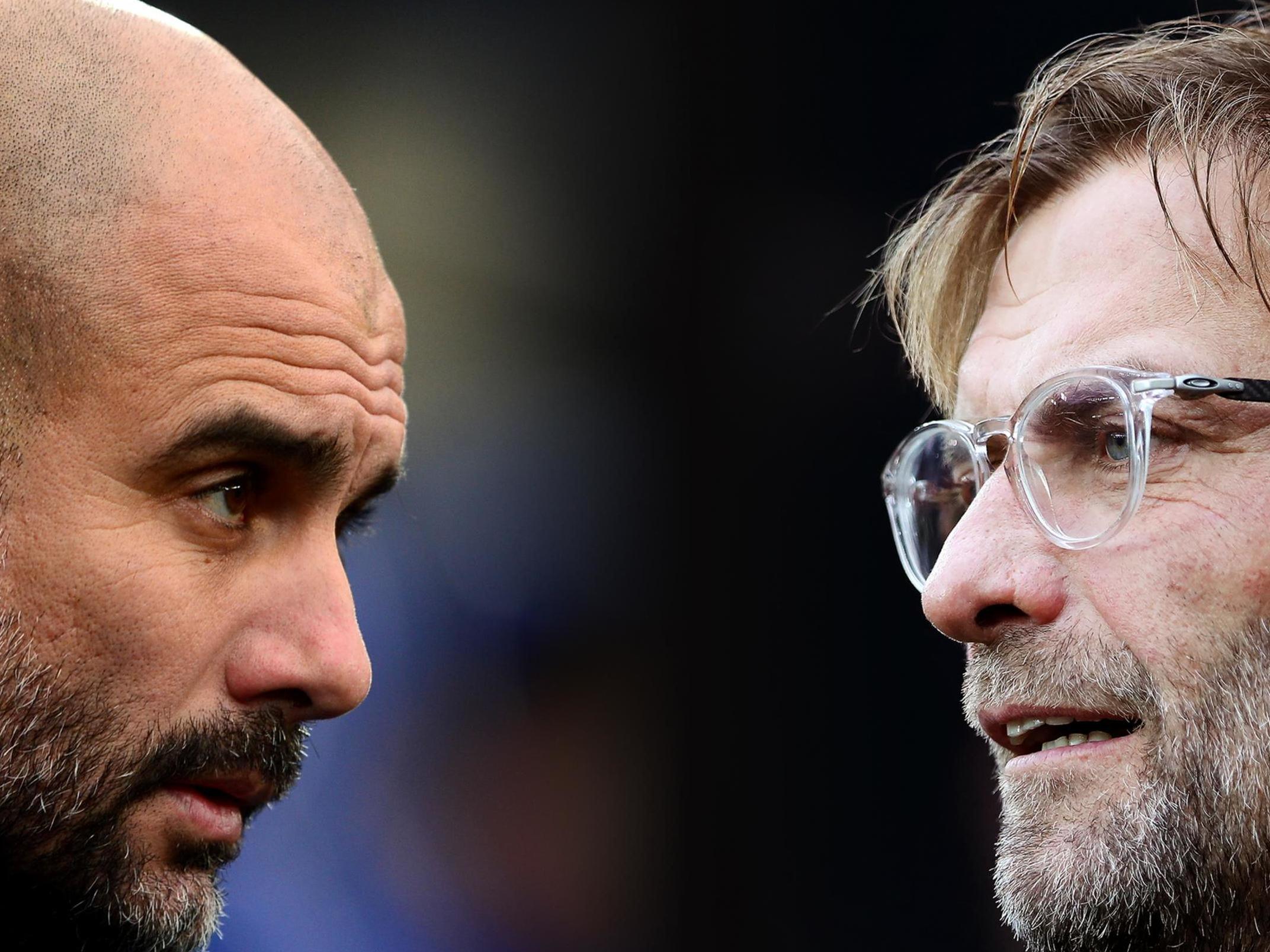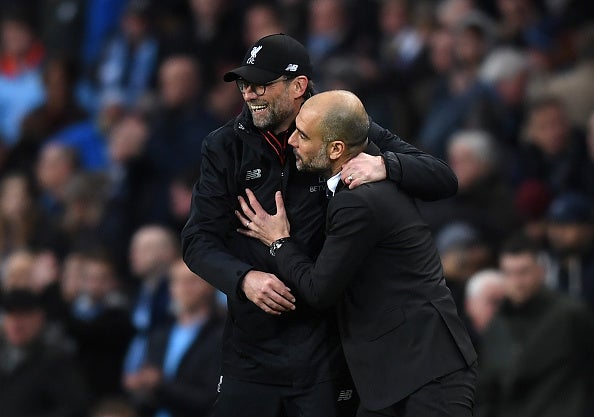Liverpool and Manchester City: Sheikhs, scouting and ‘spying’ – the anatomy of a very modern rivalry
The ugliest part of the war between Anfield and the Etihad is behind the scenes but that is just one of the many fault lines in the relationship between the top flight’s two best teams

Your support helps us to tell the story
From reproductive rights to climate change to Big Tech, The Independent is on the ground when the story is developing. Whether it's investigating the financials of Elon Musk's pro-Trump PAC or producing our latest documentary, 'The A Word', which shines a light on the American women fighting for reproductive rights, we know how important it is to parse out the facts from the messaging.
At such a critical moment in US history, we need reporters on the ground. Your donation allows us to keep sending journalists to speak to both sides of the story.
The Independent is trusted by Americans across the entire political spectrum. And unlike many other quality news outlets, we choose not to lock Americans out of our reporting and analysis with paywalls. We believe quality journalism should be available to everyone, paid for by those who can afford it.
Your support makes all the difference.The animosity between Liverpool and Manchester City on the pitch reflects only a fraction of the antipathy that exists in their boardrooms. The Premier League’s great rivalries have been characterised by spats between managers or titanic battles between players but the ugliest part of the war between Anfield and the Etihad is behind the scenes.
The news last week that Liverpool paid their adversaries £1million without any admission of wrongdoing after legal complaints that the Merseyside club were hacking into City’s scouting database between June 2012 and February the next year underlines the point. Recruitment is one of the fault lines in the relationship between the top flight’s best two teams.
It is not just at the big-money end of the market for players.
Seven years ago Liverpool poached Dave Fallows and Barry Hunter from the Etihad to be head of scouting and chief scout respectively. City were miffed enough to put the pair on gardening leave until the summer transfer window of 2012 shut. It was during this time that someone logged in to City’s Scout7 system.
Many clubs use the programme and there are stringent protocols that allow different levels of authority. It is unlikely anyone would have been able to gain access to the work of the senior stratums of City’s hierarchy. It appears that someone at Anfield was stupid and unprofessional. Nevertheless, Liverpool are probably lucky that City did not make more of the issue at the time. They had good reason to complain.
In this context, with the bad blood between the clubs building, it is surprising the settlement over the database did not erupt and was kept confidential.
The fear of being bullied by City’s spending power has always overshadowed Fenway Sports Group’s nine years of ownership at Anfield. Right from the start John W Henry, the principal owner, played down financial expectations by saying, "I do not have Sheikh in front of my name."
The Boston-based businessman hoped Financial Fair Play rules would create fiscal parity but said if that failed he would get “a Sheikh of our own.” In each case Henry could have talked about oligarchs but the use of the Arab honorific indicated his fixation with City.
At schoolboy level, Liverpool have been concerned that some of the best young prospects are having their heads turned with cash. There has been a perception – real or otherwise – that City’s spending power creates a massive advantage in this area. It can be a murky world but few Premier League teams have any right to claim the high moral ground. Invariably clubs are blind to their own transgressions and keen to point out the offences of others.
After the takeover by Sheikh Mansour, City were playing catch-up with the likes of Chelsea and Manchester United across the board. They had to outgun the big spenders and no one likes it when their power is challenged. Liverpool liked it less. There was a large amount of hypocrisy and envy at play. No one at Anfield was complaining when they poached Raheem Sterling from Queens Park Rangers.
These days City do not have to overpay. Young players want to go to the Etihad. Over the past few years the club have had agreements with United and Chelsea not to get into bidding wars for young talent.
Yet it is clear that City got into Liverpool’s head and remain there. When there were suggestions towards the end of Roberto Mancini’s tenure in charge at the Etihad that Brendan Rodgers was on the potential list of replacements, FSG inserted a £20million buyout clause into the Northern Irishman’s contract.

The champions have spent a lot of money but they worked to a plan. That was not always evident at Anfield, even in the early years of Jurgen Klopp’s time on Merseyside.
Liverpool’s sometimes holier-than-thou attitude caused irritation at the Etihad but City’s main cause of angst at the moment is a belief that Klopp’s team get the run of the ball. The feeling in Manchester is that the champions of Europe are the luckiest team on the continent. That is a complement in many ways. City recognise their main danger. The feeling is mutual.
Henry was right when he arrived in English football. He saw that the club being rebuilt in east Manchester was going to dominate the Premier League. That was obvious and so is the reality that City will try to sign the best players and will pay what they need to to get their men. No one needed to hack a scouting system to know that.
Join our commenting forum
Join thought-provoking conversations, follow other Independent readers and see their replies
Comments